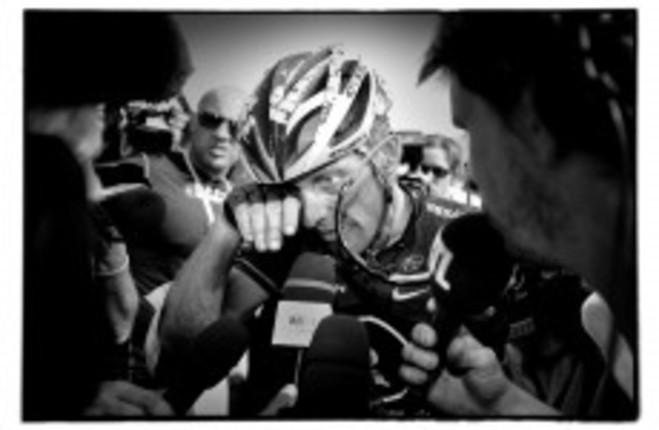A DECISION TO strip Lance Armstrong of his career record, including his seven Tour de France wins, and ban him from cycling for life for doping rides roughshod over established anti-doping rules, experts have told AFP.
Several sports law specialists said the US Anti-Doping (USADA) report that triggered Armstrong’s downfall and world cycling’s confirmation of its punishment ignored the statue of limitations that ordinarily applies in such cases.
The Texan rider, condemned by sworn eye-witness testimony from former team-mates who were also taking banned substances, may even have grounds for appeal to the Court of Arbitration for Sport over the decision, it was suggested.
“The case is certainly unique in its scale but it’s not a reason not to apply or even ignore the (anti-doping) rules, as we’ve seen,” said Antonio Rigozzi, a doping law professor at the university of Neuchatel in Switzerland.
The lawyer, however, said that although he could understand why the International Cycling Union (UCI) preferred to ratify the USADA findings, the sport’s world governing body had lost credibility by “giving precedence to politics over law”.
Anti-doping rules state that there is an eight-year time limit to bring cases of alleged violations but eyebrows were raised in legal circles about agreements made with Armstrong’s former team-mates to testify against him. Armstrong was said to be at the heart of the biggest doping programme in the history of sport and was stripped of his career record from August 1, 1998, leaving him with just a handful of race wins and a revised best Tour finish of 36th.
“We’ve not got a classic anti-doping procedure but an Armstrong procedure,” said Alexis Schoeb, another Swiss lawyer specialising in sport.
“We’re focusing solely on him and we’re accepting, in exchange for testimony favourable to the dossier, to have a number of other athletes spared by this tidal wave.
“A lot of former cyclists are currently owning up, like the head of the Garmin team, Jonathan Vaughters. In these cases, the eight-year limitation has been respected. For some, we’re applying the rules and for Armstrong we’re not. There a touch of double standards.”
Coup
French lawyer Jean-Jacques Bertrand said that USADA pulled off a political coup by allowing public access on its website to “a very detailed, very robust report which practically made any appeal doomed to failure”.
“No one dares criticise the USADA for fear of appearing to defend Armstrong. But we need to have dispassionate judges who apply the law as it stands,” added the former Court of Arbitration for Sport judge. For Schoeb, the Armstrong case would be worth putting before the court to get a satisfactory legal ruling.
“In its current state, there are too many grey areas. Debate about the case is nevertheless positive because it gives us a chance to shake things up and invites us to question the business of sport,” added Schoeb.
The World Anti-Doping Agency (WADA), which still has three weeks to appeal to the tribunal, would not be spared from criticism if it also supported the USADA dossier.

